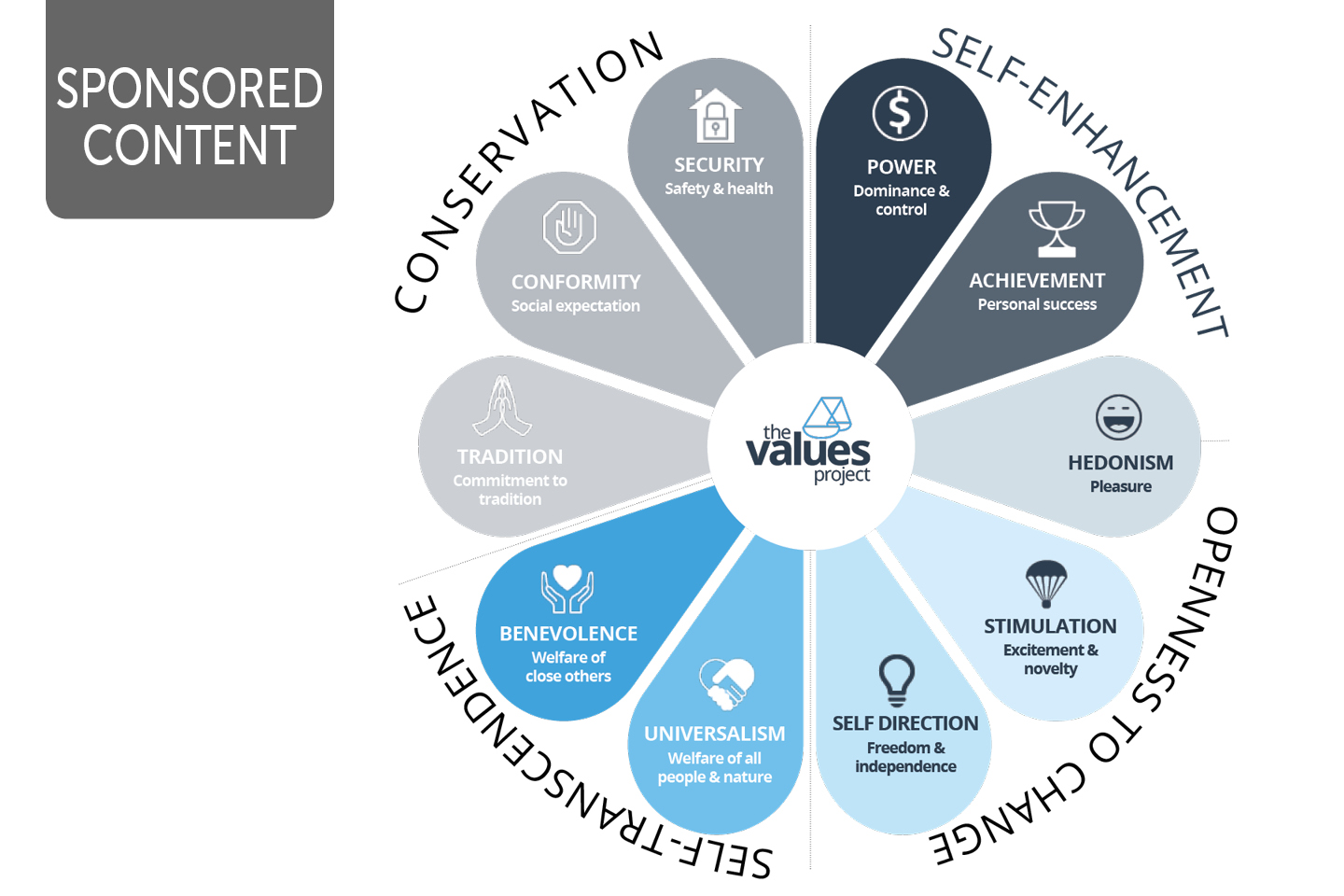

At the UWA Centre for Human and Cultural Values we know a lot about values. Here are three things you should know, based on our work on The Values Project. Firstly, a universal set of 10 basic values has been found, in hundreds of studies in more than 80 countries, to form a circle of motivations. Values located closer together share compatible motivations that can be satisfied in similar ways, like prioritising the welfare of close others (i.e., benevolence) or all others and nature (i.e., universalism). In contrast, opposing values have conflicting motivations that cannot be easily satisfied at the same time.
Secondly, we all naturally think that the values important to us should be important to everyone. But this is not the case: people share a common set of values, but differ widely in what is most important to them.
Thirdly, humans are not the only ones to hold values. People attribute values to organisations, brands and even countries. Perceptions of value-congruence between employees and organisations have a positive influence on trust, communication, and retention. Value-congruence between consumers and brands and between brands’ values and advertising have a positive influence on purchase decisions.
Organisations should strive to have clear and coherent values statements that guide the daily routines of management and employees and help people understand their purpose. Without this, organisations miss a fundamental opportunity to engage, motivate and mobilise people towards that greater purpose. Organisations which understand the values circle when they select values statements will be able to communicate a clear and coherent purpose.
Considering the values circle also helps organisations to reflect on a purpose that may go beyond their primary function. For instance, resource companies’ values statements often seek to promote a positive impact on society – such as the promotion of sustainability, inclusion, and community engagement. Their espoused values, then, should be used to guide the way they do business, their employment practices, and how they contribute to society.
UWA prioritises excellence, integrity, innovation, collaboration and equity, which reflect the values of self-transcendence and openness to change. These values are what we expect from a world-class university that focuses on the creation of new knowledge and the advancement of the prosperity and welfare of our communities. At UWA, these values underpin the design of our education programs, the relationships we pursue, and our research.













